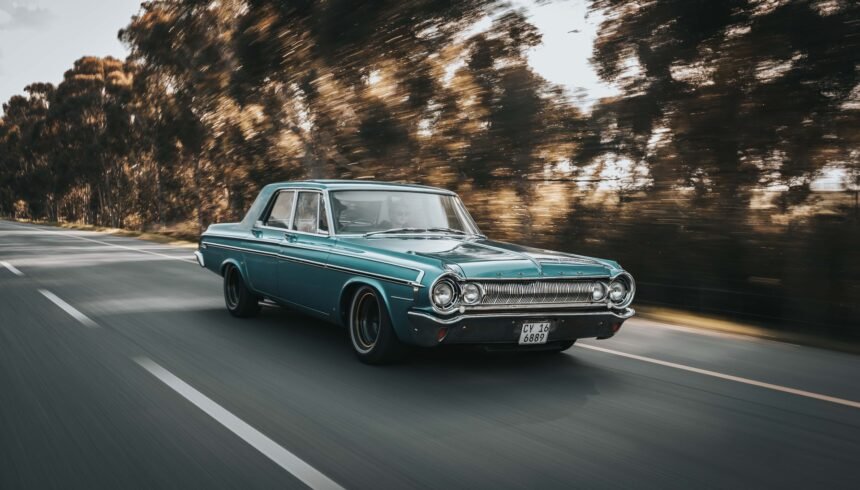Finding the right shop for your classic car restoration isn’t just about picking the closest garage or the one with the flashiest Instagram page. A proper restoration—especially of something as iconic as a vintage Ford Bronco—requires a serious investment of time, money, and trust. Choosing the wrong shop can lead to missed deadlines, ballooning costs, or even worse, a botched build. So, how do you separate the amateurs from the experts? Here’s what you should look for when evaluating a classic car restoration shop.
Proven Track Record of Past Work
The foremost thing to keep in mind is their ability to demonstrate a long list of successful restorations. A credible workshop will not only give you the chance to browse through their portfolio that includes the builds they have completed but also attach the before-and-after photos, the detailed build sheets, and the customer stories that would make you feel they have actually done the job for you. When you select a workshop for your project, it is paramount to see the documentation that they have done similar works and have been successful over time.
First and foremost, pay attention to the makes that they work on. While some workshops might have various models like old-school cars in mind, if you plan on restoring a specific model, such as the very first Bronco model Ford produced, you need to go to a place that has dealt with that specific car extensively. In some instances, classic cars require specific knowledge of engineering features such as the right body lines and the right drivetrain configurations.
For instance, HighLine Classics deals with the specialization of early Ford Broncos and vintage trucks. The portfolio they put forth shows not only the extent of their experience but also their clear grasp of what collectors and enthusiasts demand from top-notch restoration. Such a shop as this usually embodies the attributes that one should seek: having clear documentation, model-specific expertise, and an evident passion for the craft.
Customer Feedback and Reputation
In the restoration world, reputation matters. Word of mouth, online reviews, and testimonials can provide critical insight into a shop’s reliability and quality. Look for feedback not just about the final product, but also about the customer experience throughout the process.
Did the shop communicate clearly? Were timelines respected? Did they handle unexpected issues with professionalism? A good restoration shop will earn loyal customers who are willing to share their positive experiences. On the flip side, if multiple reviews mention poor communication, delays, or quality concerns, take it as a serious red flag.
Don’t hesitate to ask for references. A reputable shop will have no problem connecting you with past clients who can speak about their experience. Restoration projects can stretch over months or even years, so knowing that others have trusted the team—and been satisfied—is a major point in their favor.
Specialization and Expertise
Not all restoration shops are created equal. Some focus on specific makes or models, while others may offer general classic car services. Ideally, you want a shop that specializes in the type of restoration you’re seeking. This could be frame-off restorations, custom builds, period-correct restorations, or resto-mods.
A shop that specializes in early Broncos, for instance, will know exactly how to deal with common rust areas, hard-to-find parts, and performance upgrades that retain the vehicle’s classic feel. This level of specialization means fewer mistakes, faster progress, and better final results.
HighLine Classics, for example, focuses on restoring and customizing early Ford Broncos with expert craftsmanship. Their focused approach means they not only know how to source rare parts but also how to implement modern upgrades in a way that respects the vehicle’s heritage. This kind of expertise is exactly what you should look for in a shop, especially if you’re planning a high-end or custom build.
Transparency and Communication
Effective interaction is the cornerstone of successful refurbishment. With the restoration project full of complexity and uncertainty, it may often require such flexibility of the budget and time. A competent store will realistically set expectations from the very beginning, constantly inform you about the stage of the process, and tell you the truth if any problem occurs.
Start asking your questions. What’s their approximate time? What actions do they take to avoid parts delays or over-the-scope changes? Will you be receiving updates regularly or seeing photos? A professional facility will not only answer these queries but they will also provide you with clear and honest answers. Avoid any shop that does not appear to be candid or that gives overly optimistic without explaining how they will reach the goals.
Workplace and Personnel
The last thing to do is pay a visit to the shop being considered. A well maintained and well organized working area is a strong evidence of the business being a disciplined and professional one. Find out about the team’s expertise, what equipment they have, and if they do most of the labor themselves or if they subcontract like painting and engine rebuilding. A shop that does most of the work internally is likely to have better quality control and quicker turnaround.
Recap
In essence, an excellent classic car restoration enterprise must encompass the following criteria: a very good reputation, favorable customer feedback, specific knowledge of models, precise communication, and an astonishing workshop. Manufacturers like HighLine Classics are the very essence of the topic as they are binding all of them together and, more importantly, they are the first and foremost., emphasizing the need to protect automotive history. The moment you find a shop that fulfills all the standards, you not only put money into a car but you also assure a project which will be worth every single penny spent.







